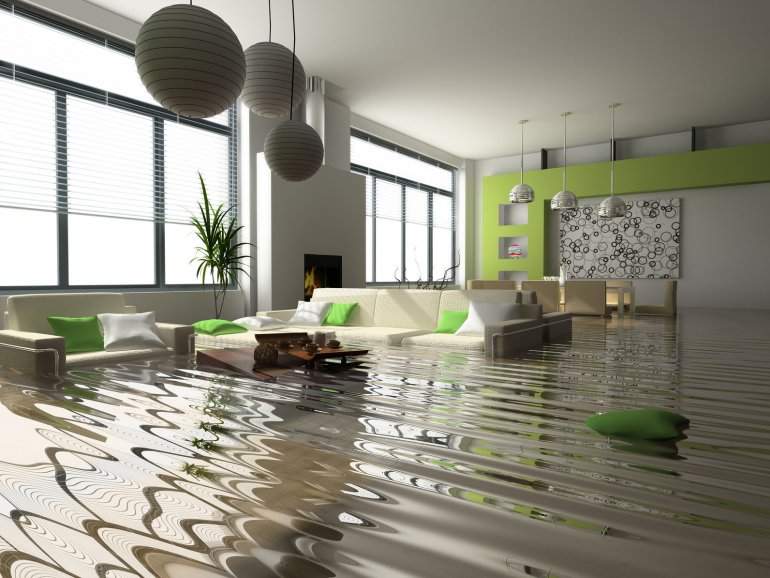South Africa’s property market is evolving, with stats showing that the number of people who rent and who live in sectional titles (like apartments or townhouse complexes) is rising fast. Association of Residential Communities (ARC) data shows that 5 million people live in ‘organised communities’ while StatsSA census data shows nearly a quarter of households rent rather than own their homes. If you’re among the millions of South Africans who rent a unit in a sectional title, you are part of a growing cohort.
As anyone who has rented a flat knows, this living arrangement has its fair share of challenges, from disputes with noisy neighbours to unexpected maintenance issues that pop up at the worst possible time. A common source of friction between landlords and tenants is who holds responsibility when disaster strikes in the form of a burst water pipe or a collapsed ceiling. As a renter, you might assume that the landlord and body corporate will sort it out for you. But it’s important to know where the responsibility lies for different issues if the unforeseen happens, says Ernest North, co-founder of Naked insurance.
“Your landlord – or the body corporate on their behalf – is legally obliged to ensure that the property you’re renting is safe and suitable to live in,” says North. “This includes repairs and maintenance of the building and its features. If a burglar breaks down a door to access the property or the DB board keeps tripping, the landlord should ensure the home is repaired to a liveable standard. In a sectional title, however, the body corporate usually facilitates the building insurance on behalf of the property owners. It’s important to know what is insured, what is not, and where to start if you have a problem.”
What the body corporate’s building insurance should cover
The body corporate will usually be responsible for arranging buildings insurance on behalf of all owners. This will cover permanent fixtures that are part of the building’s structure – for example:
- Walls, floors, and ceilings
- Built-in cupboards and fitted kitchens
- Plumbing and electrical wiring
- Shared areas like stairwells, corridors, and roofs
- Hot water systems
- Fitted inverters and solar panels
The body corporate’s insurance will exclude anything that isn’t a permanent part of the building. If you could turn the flat upside down and shake it, anything that fell out would not be covered. This includes:
- Furniture, electronics, appliances, and clothes
- Rugs, curtains, blinds, and other décor
- Personal belongings of any kind
Your stuff, your responsibility
“All the movable items you brought with you when you moved into your rented home are your responsibility, no matter how they get lost or damaged. This means you’ll need your own home contents insurance to protect the things you move into your rented home,” North says. “Your contents insurance will cover you if your TV is stolen in a burglary or if your personal belongings are damaged in a fire. Bear in mind, if a burst water pipe ruins your prized Persian rug, the cost of replacement will need to be covered by your contents insurance rather than the buildings insurance.”
Personal liability cover is one of the underappreciated benefits found in many home contents insurance policies, adds North. This form of insurance protects you against legal liability if you cause accidental damage to someone else’s property or hurt them by accident. Consider, for example, a friend slipping on a wet floor in your kitchen and breaking their ankle, your child accidentally breaking your neighbour’s sliding glass door, or your forgotten tap flooding the flat under yours.
The claiming process
So, what happens if something goes wrong in your rented property, like a storm that tears the roof off or a pipe bursts inside the wall? Here’s how claims generally work:
- Notify the owner or their estate agent.
- They should contact the corporate body and ask them to claim or get their permission to claim directly.
- Get your proof and supporting documents together, like photos and damage reports.
- Simple claims (like geyser replacements) should be settled within days.
A few final tips
- Ask your landlord for a copy of the building insurance schedule, so you know what’s covered.
- Keep records of any maintenance concerns you report to your landlord and correspond with them in writing. If you warn them about a leaking roof, for example, they could be liable for damages if they don’t attend to it.
- Clarify geyser responsibilities: In some sectional titles, the body corporate covers geyser replacements, but not always.
- If you rent a unit in a sectional title, find out whether the complex or landlord is responsible for any backup power provided (like solar panels or an inverter) and who maintains it.
- If you get contents insurance, you might need to specify some portable and high-value items on the policy. Things like smartphones, laptops, bicycles, and jewellery that leave the house with you may need to be specified to be fully protected outside your home.
- Even if you’re a young renter who doesn’t own a lot of expensive items, home insurance may be worth looking into simply for the personal liability protection it includes.
